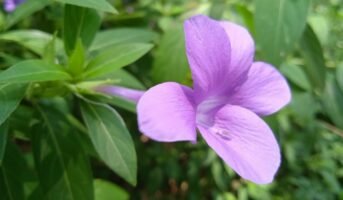Most people in India don’t care for the summer heat. Bur, majority of them eagerly wait for the season in the anticipation of tasting the heavenly fruit, known as Mango in English and Aam in Hindi.
In fact, relishing this universally loved fruit, which is referred to as Kalpavriksha (wish-granting tree) in ancient Indian scriptures, during the summer evenings has become a century-old ritual in many households.
Biologically known as Mangifera Indica, mango is India’s national fruit. Often referred to as ‘phalon ka raja’ (king of fruits), it is also the most important commercially grown fruit of the country.
See also about the national flower of India
Mango scientific nameMangifera Indica is the scientific name of mangoes.
Family of mangoMangoes belong to the Mangifera genus. The Mangifera genus consists of about 30 species of tropical trees in the flowering plant family, Anacardiaceae. This family of the mango is also known as cashew, or sumac family. Cashew, hog plum, pepper tree, poison oak, and pistacia belong to the same family. |
Do check these Picturesque tea plantations in India you cannot miss
Sweet and sour: The double delightRaw mango pickleMango lassi
When did the mango first grow?Mangoes were first grown in India over 5,000 years ago. NameIn Malayalam, mango is called ‘Manga’ or ‘Mampalam’. The Portuguese pronounced it as ‘Mangga’, and later it became mango in English.
(A shot of fruit bearing tree with small mangoes and its flowers.) See also: all about Inside Cashew Plant Mango production in India(Heap of fresh ripe yellow mangoes at market in India.)
Do you know that more than 50% of world’s mangoes is produced in India? China, Thailand, Mexico, Pakistan, Philippines, Indonesia, Brazil, Nigeria, and Egypt are some other countries where mangoes are grown.
Alphonso mango tree
Full mango tree
Mango garden |
Mango must know facts
What is the national fruit of India?
Mango is the national fruit of India.
What are the benefits of the national fruit?
Rich in vitamins, minerals and antioxidants and a great source of magnesium and potassium, the mango offers several health benefits.
Supports eye health
Supports better immunity
Supports hearth health
Supports skin health
Supports hair health
Aids digestion
May have anti-cancer effects
May help cholesterol level
May helps in regulating diabetes
How to grow and care for Mango?
- Cut open the shell of a ripe mango without damaging the inner seed.
- Peel off the thin brown layer on the seed. Give it a wash.
- In a container, put some coconut fiber, and place the seed on top. Sprinkle some water.
- Cover the container and put it in shade.
- In days that follow, continue to sprinkling some water on the coir. Make sure you don’t over water it.
- The seed would start to sprout in 10 days.
- Transfer it in a small pot covered with potting mix. Place the container in an area with a lot of sunlight.
Mango plant care
- Avoid heavy watering and stagnation of water in their basins.
- Remove stock sprouts.
- Provide support to the plants for their upright growth.
Export variety mangoes
Mangoes are processed by the APEDA-registered packhouse facilities and then exported to various regions and countries, including middle east, the European Union, the US, Japan and South Korea. Alphonso, Kesar, Totapuri and Banganpalli are leading export varieties from India. Mango exports primarily take place in three forms: fresh mango, mango pulp, and mango slice.
FAQs
What is the national fruit of India?
Mango is India's national fruit.
How did the word mango come into existence?
The name mango has its origin in Malayalam word ‘Manga’.
An alumna of the Indian Institute of Mass Communication, Dhenkanal, Sunita Mishra brings over 16 years of expertise to the fields of legal matters, financial insights, and property market trends. Recognised for her ability to elucidate complex topics, her articles serve as a go-to resource for home buyers navigating intricate subjects. Through her extensive career, she has been associated with esteemed organisations like the Financial Express, Hindustan Times, Network18, All India Radio, and Business Standard.
In addition to her professional accomplishments, Sunita holds an MA degree in Sanskrit, with a specialisation in Indian Philosophy, from Delhi University. Outside of her work schedule, she likes to unwind by practising Yoga, and pursues her passion for travel.
sunita.mishra@proptiger.com

